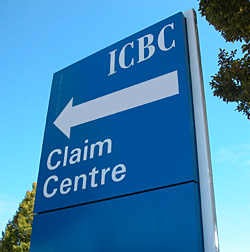ICBC employees vote in favour of job action
Union members at the Insurance Corporation of British Columbia have voted 87 per cent in favour of job action, said the Canadian Office and Professional Employees Union, Local 378 (COPE 378). The collective agreement expired in 2010 and the union and ICBC have been bargaining since January of 2011.
“The strength of this vote is a clear indication of the level of frustration felt by our members at ICBC,” said COPE 378’s Vice President Jeff Gillies. “We’ve been without a contract for two years. ICBC has refused to talk about the issues which are a top priority for our members: workload, wages and contracting out. We hope the mandate for job action will prompt ICBC to work with us at the bargaining table to find a fair and reasonable agreement.”
“We are concerned, however, that the Corporation applied for essential service designation and then, just yesterday (April 24) told us they wouldn’t be able to continue bargaining until a government review of ICBC had been completed,” added Gillies. “The government appears to be setting the public up for a long, long strike while we wait for them to give ICBC a bargaining mandate.”
ICBC applied to the Labour Relations Board to have portions of their unionized workforce declared an “essential service.” Under the Labour Relations Code, this means ICBC is arguing a strike by any of these portions of the workforce pose an “immediate and serious danger to the health, safety or welfare of the residents of British Columbia.”
In the October 2011 Throne Speech the provincial government announced it would undertake reviews of all of the Crown Corporations. The review of ICBC had not begun as of March 2012.
“It’s a stretch to see how ICBC qualifies under essential services legislation and especially egregious given how long we’ve not had a contract. It’s a big hammer they’ve pulled out and it was premature. We had been hoping for a negotiated settlement.” Gillies said.
The union will now consider its options given that ICBC has rushed forward with an essential service application. Gillies added that COPE 378 members’ dispute is with ICBC and the government, not drivers, and that the union would make pains to avoid impacting the public if forced into job action.
Since 2009 ICBC has increased compensation for auto body shops, lawyers, and other professionals who have contracts with ICBC. During that same time COPE 378’s 4,600 members at ICBC have seen their wages and benefits stay stagnant, meaning their take home pay has eroded due to inflation.
Additionally, despite ICBC’s substantial profits, drivers have not seen meaningful rate reductions or rebates in over five years.
Instead, the provincial government has siphoned hundreds of millions of dollars from ICBC into general revenue. The government’s 2012 budget and fiscal plan states that they will take $1.174 billion from ICBC between 2010 and 2014.
This article is a press release from COPE Local 378.


























Comments